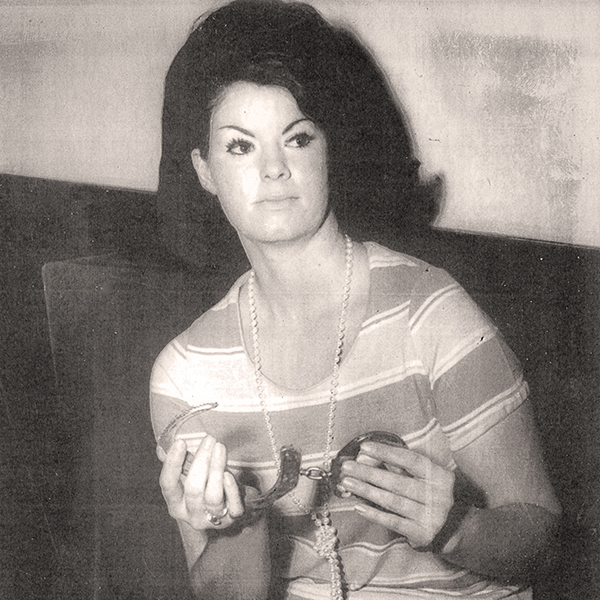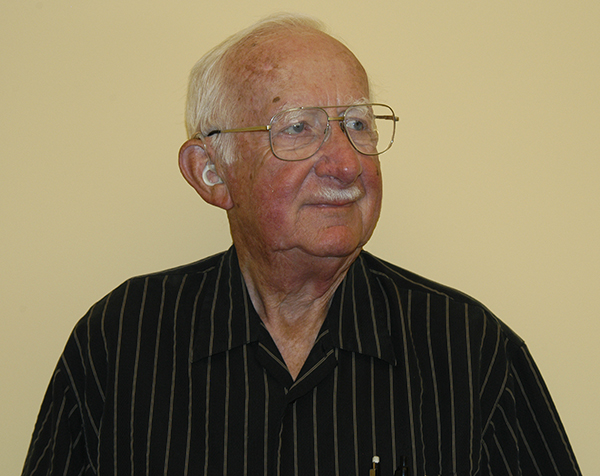 By 1970 the Omaha Police Department had a few “policewomen,” but they were not allowed in cruisers and were not full police officers, or “patrolmen” as the city called them. On January 15 of that year Nancy Bradshaw, age twenty-nine, applied for the job of patrolman.
By 1970 the Omaha Police Department had a few “policewomen,” but they were not allowed in cruisers and were not full police officers, or “patrolmen” as the city called them. On January 15 of that year Nancy Bradshaw, age twenty-nine, applied for the job of patrolman.
“Nowhere on the qualification sheet does it say the applicant has to be a male,” she told the Omaha World-Herald. “By federal law they cannot specify male or female.”
Bradshaw was no stranger to OPD. She had already worked nine years in the Municipal Court clerk’s office at the Central Police Station. And at 5’ 8” and 142 pounds, the athletic Bradshaw met the physical requirements for the job.
But at first, OPD refused to allow Bradshaw to even fill out an application. “Personnel Director Ernest Howard said the reasons are ‘obvious’ why Omaha doesn’t hire men to be policewomen and women to be policemen,” the World-Herald reported with amusement under the headline “First Female Fuzz?” on January 17. The next day’s edition noted that Bradshaw was “curvy and a mother of two.”
Undaunted, Bradshaw filed a complaint with the Human Relations Department charging sex discrimination. The World-Herald noted that “Mrs. Bradshaw may have something going for her in federal law. There have been cases similar to hers, though not involving law enforcement, in which it has been ruled that the traditional men-only or women-only rules could not be legally applied. She might make it if she’s persistent enough.”
She was, and she did. The city reluctantly allowed her to enter patrolman’s training at the police academy. Bradshaw graduated in 1971, but OPD still made her a policewoman. Bradshaw continued to argue for equality. Finally, in 1974 the city dropped the gender references—“patrolmen” became “police officers” and Bradshaw at last became a regular cop like she wanted. (And that fall, incidentally, the TV series Police Woman, starring Angie Dickinson as an undercover detective, premiered on NBC.)
According to a January 25, 2013, World-Herald article, Bradshaw was remembered as a “consummate professional.” Once, when she tested for sergeant, she was offered the promotion despite testing behind several other male applicants. Bradshaw refused, remaining a police officer until retirement.
“Nancy was a person of principle,” retired Deputy Chief Marty Crowley said.
After her retirement from the police force, Bradshaw spent ten years as varsity tennis coach at Duchesne Academy. She died in 2013 at age seventy-two.
 Here at History Nebraska, we’re grateful for our many wonderful volunteers who assist the staff as research assistants, museum docents, and in countless other ways. The article above was based on research by longtime volunteer Vince Goeres. A retired banker, Vince volunteered for us from 1991 until just weeks before his death at age 89. Countless History Nebraska articles, exhibits, and other projects in recent decades have been more complete and more accurate because of some fact that Vince checked or some source he uncovered. He even wrote a book, Wings Over Nebraska (read a PDF excerpt here), based on our historic aviation photos. We miss him.
Here at History Nebraska, we’re grateful for our many wonderful volunteers who assist the staff as research assistants, museum docents, and in countless other ways. The article above was based on research by longtime volunteer Vince Goeres. A retired banker, Vince volunteered for us from 1991 until just weeks before his death at age 89. Countless History Nebraska articles, exhibits, and other projects in recent decades have been more complete and more accurate because of some fact that Vince checked or some source he uncovered. He even wrote a book, Wings Over Nebraska (read a PDF excerpt here), based on our historic aviation photos. We miss him.



